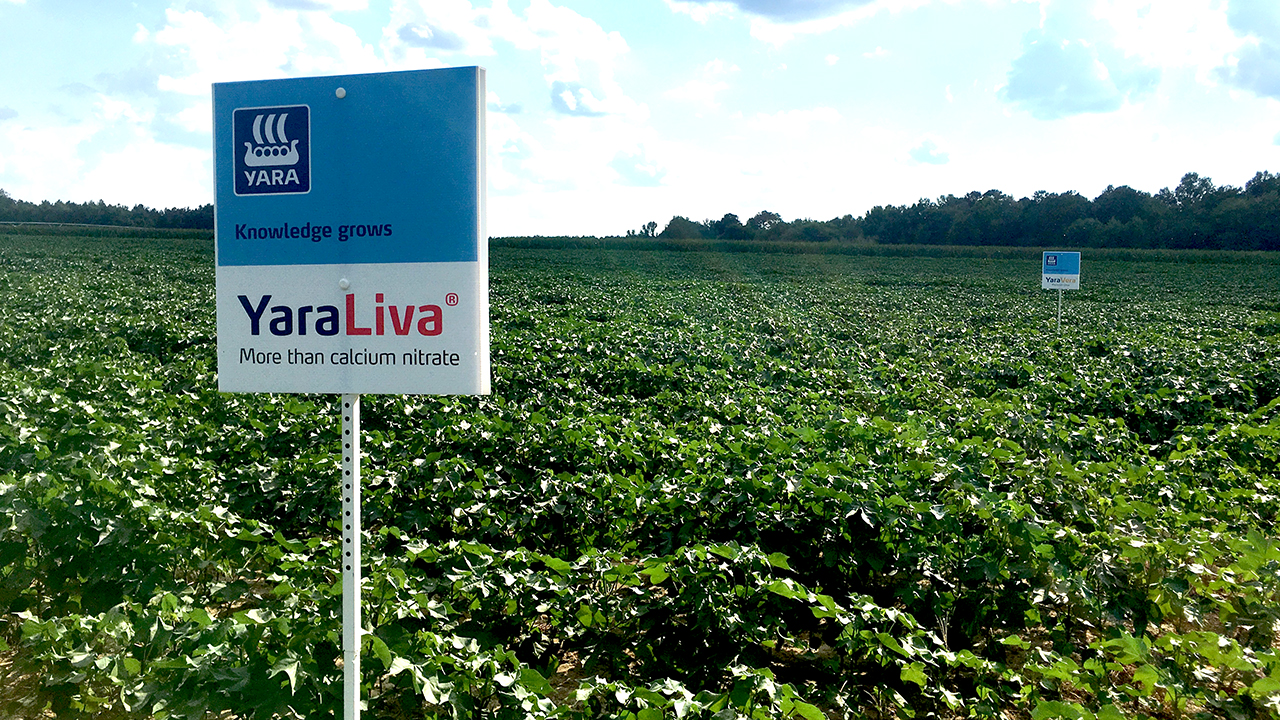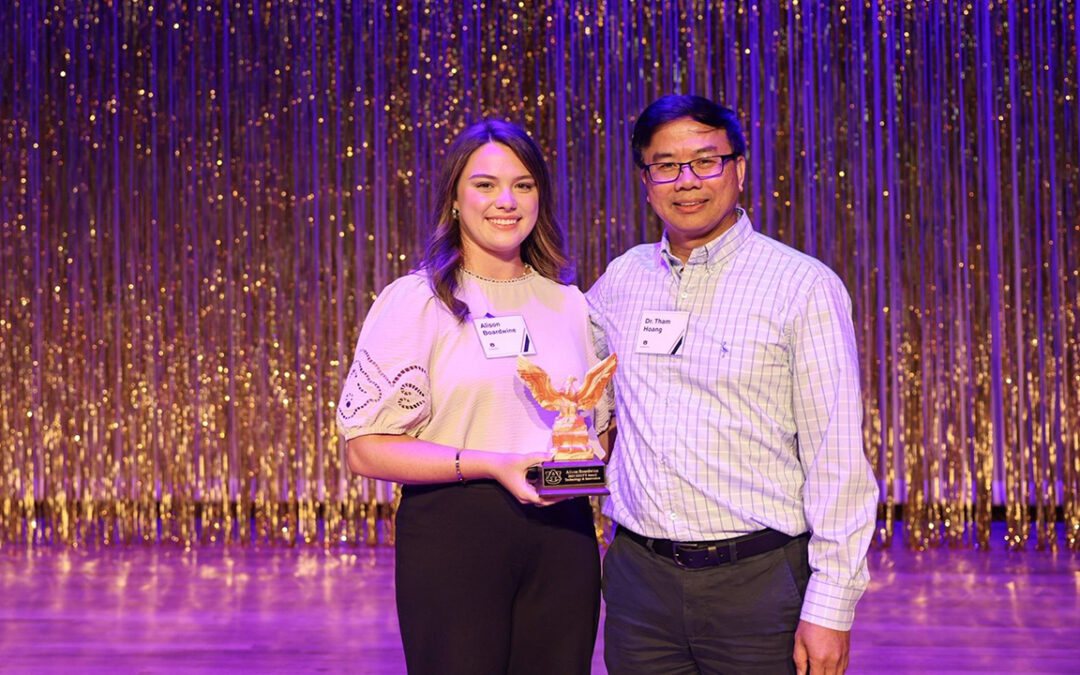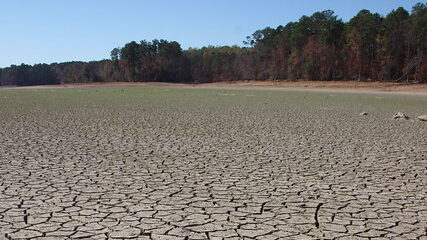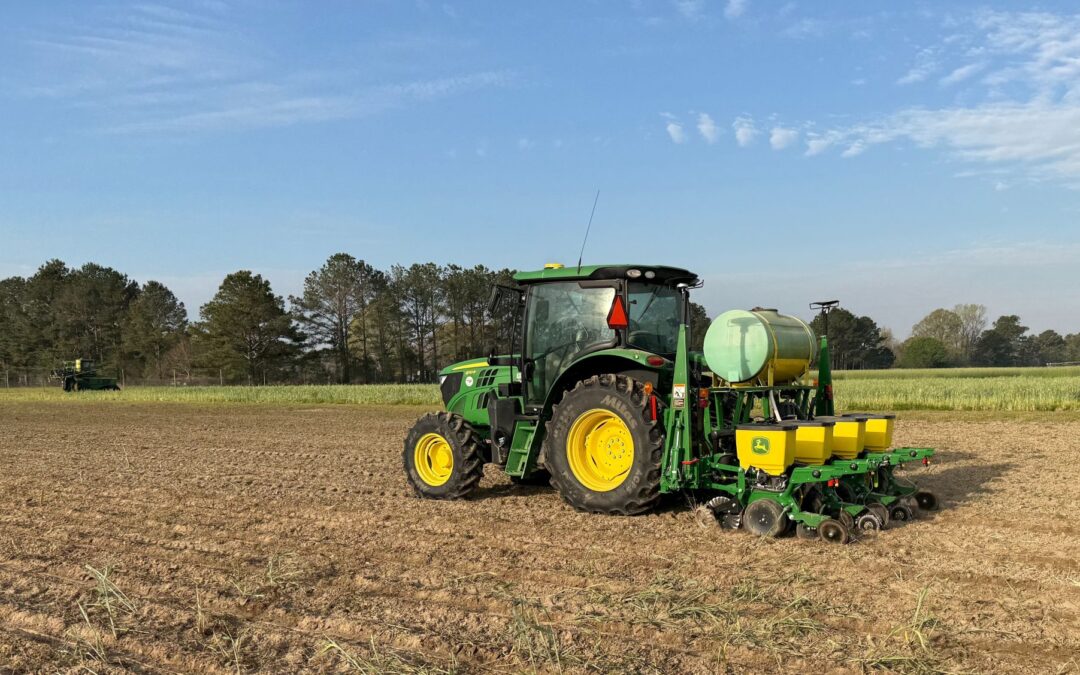By Paul Hollis / Jun 11, 2020 9:35:36 AM
College of Agriculture, Feature
In a unique agreement, Auburn University’s College of Agriculture is joining with an international corporate partner to create a research incubator farm at one of its Alabama Agricultural Experiment Station (AAES) sites.
The farm is one of only three in the world in which Yara North America works with partners. The other farms are in Modesto, California, and Western Canada.
The concept for such a partnership is not an entirely new one for Auburn, said Greg Pate, director of research operations for AAES.
“The idea of corporate partnerships to help fund and facilitate research operations has been utilized previously at E.V. Smith Research Center (EVSRC) in Shorter, Alabama,” Pate said. “Agreements with Hagie Manufacturing and TeeJet Technologies served as a foundation to help build this agreement and to ensure that all parties benefit.”
Discussions began in 2018 with representatives of Yara for a partnership to provide Auburn University with resources for fertility research while also providing a product development site in the Southeast for the international corporation.
“In our journey at Yara to understand soil fertility and crop nutrition dynamics on a deeper level, we set out to find a space and partnership that would synergize with these goals,” said Trey Cutts, market development manager for Yara and a former extension specialist in the College of Agriculture.
“My past relationship with the college and AAES led to collaborative planning with Greg Pate, and the Yara Incubator Farm at Auburn University was born,” he said. “At Yara, we truly feel that ‘knowledge grows,’ and this farm will enable us to continue to expand our understanding of the interplay of nutrition, water, environment, soil, technology, equipment and more.”
With the insights gained, everyone involved will be better equipped to support growers’ efforts in producing their best crop, increasing profitability and farming in an environmentally sustainable way, Cutts said.
“The land grant university system in the U.S. has such value for American agriculture and the public it serves,” Cutts said. “There is such an advantage for Yara to work with a great public institution like Auburn University to ensure our efforts are in tune with what brings value and return to farmers and the public at large.
“Likewise, Yara can bring a level of product development and innovation that works to enhance the research, teaching and extension mission of a land grant university such as Auburn. There is such clear mutual benefit and synergy in a partnership like this.”
By utilizing large, multi-acre plots, Yara and its partners will be able to gather many layers of data and an intimate knowledge of every aspect of the cropping system over the coming years, he said. The field-scale research will provide valuable insight into the conditions and challenges that growers and advisors face.
“We set out to utilize an area of the EVSRC previously used for horticulture research after that unit was combined with the EVSRC Plant Breeding Unit near Tallassee,” Pate said. “The site area is approximately 75 acres.
“To date, cotton, corn and soybeans have made up the majority of the test and demonstration crops. Wheat and canola also have been planted as cover crops but not yet incorporated into research and demonstration.”
The site, he said, will incorporate all of the latest technologies for crop production.
There are many benefits to selecting E.V. Smith Research Center as an incubator farm site, Cutts said.
“We knew that AAES and Auburn University have a tremendous legacy in soil science and crop nutrition,” he said. “AAES also is greatly supported by the university and various organizations in Alabama and has a special relationship with the farming community. With that, there are amazing tools and people available to maximize a partnership like this.”
Interestingly, he added, the E.V. Smith Research Center is situated in the transition zone of the Upper Coastal Plain, which is ideal for representing cropping systems throughout the Eastern U.S. Combined with the precision equipment used by the center, it was a natural place to be, Cutts said.
“From soil sampling and site evaluation to characterize soils and any variabilities present to harvest methods that include yield monitoring to analyze data spatially, the entire operation is built upon technology,” Pate said.
Fertilizers are applied at the farm in large plots using variable-rate applicators to ensure accuracy and precision, he said.
“Planting employs a state-of-the-art planter operated by the Farm Services Unit for precision agriculture research,” Pate said. “Variable-rate irrigation also is used to maximize water usage among the various crops at the site.”
Cutts agreed that a primary focus of the farm is advanced technology. “One of the main initiatives we are implementing is the use of spatial analytics to understand crop response to fertility programs in an intimate yet real-world way.
“With modeling of various soil, image and yield data maps, we are using the variability that exists, as it does in all production fields, to strengthen our understanding of crop nutrition in production environments. In this effort, we are utilizing advanced soil mapping techniques, unique digital tools from Yara Digital Farming and precision application and harvest equipment provided by AAES,” he said.
As part of the partnership agreement, Yara has supplied E.V. Smith Research Center with a variable-rate irrigation center pivot irrigation system, Cutts said. Other options are being considered for special applications, but the system currently is the heart of irrigation on the site.
This state-of-the art irrigation technology will allow for the implementation of prescriptive irrigation treatments to analyze the interaction of crop nutrition response.
In the farm’s first year of operation in 2019, Audrey Gamble, assistant professor and extension specialist in the Department of Crop, Soil and Environmental Sciences, began using the site for nitrogen source evaluations in cotton.
“The potential for cooperation goes beyond classic fertility research,” Pate said. “Moving forward, any discipline with interest in soil fertility and fertilizers will be welcomed at the farm.”
The partnership, he said, allows for data to be generated for both proprietary and public usage. Distribution is determined by the investigator so that studies completely held by Yara may be proprietary while Auburn University faculty experiments are public.
Joint findings are shared between Auburn and Yara. Field days and other events will be a part of the venture.
“This partnership provides much needed revenue to the EVSRC to help improve and operate the site and upgrade equipment as needed,” Pate said. “Yara gains a much-needed presence in the Southeast so that they can evaluate products within the climate and cropping systems of the region. Both entities now have a specific site to hold field days and other activities to promote current findings.”
One of the main goals, Cutts said, is to create a space of learning for industry, academia and the public.
“In addition to research, the farms will also act as a place for partnerships with industry organizations to develop long-term relevant solutions for growers through collaboration,” he said. “The farms are available to give farmers the opportunity to see first-hand the benefits of a complete crop nutrition solution.”
Even with a few delays and an extremely dry summer and fall in 2019, the first year of data collection was successful, he said.
“We are now entering the second cropping season at the farm,” Cutts said. “We learned a lot during the inaugural year about the farm characteristics and crop response across the area, which will strengthen our understanding going forward. Each year will add to our base of knowledge and hopefully uncover some mysteries in soil fertility and crop nutrition across this space and time.”
Yara, Cutts said, has taken the lead in developing digital farming tools for precision farming and works closely with partners throughout the whole food value chain to develop more climate-friendly crop nutrition solutions.





